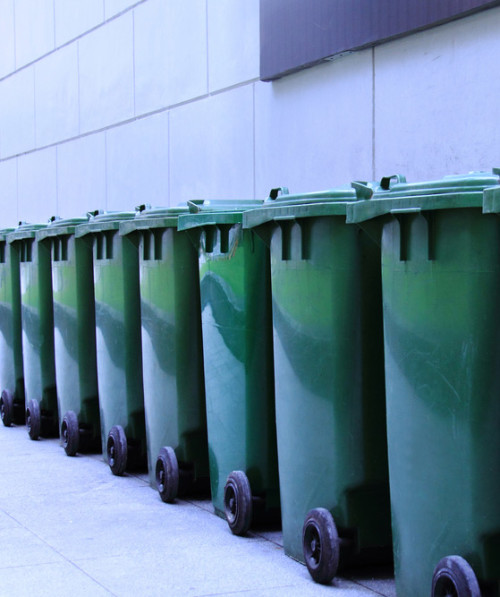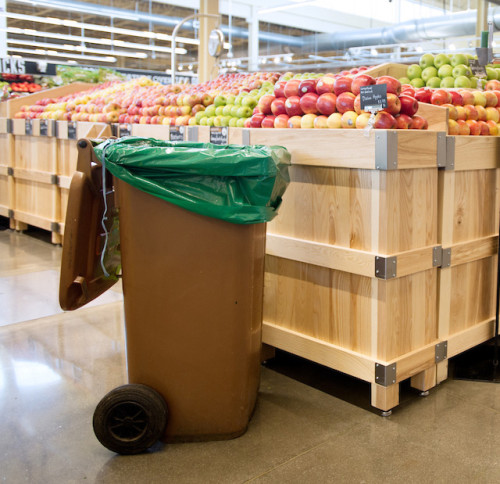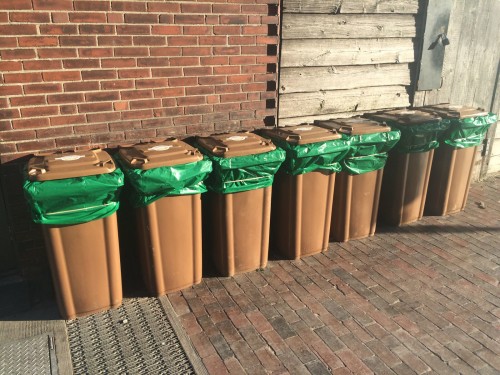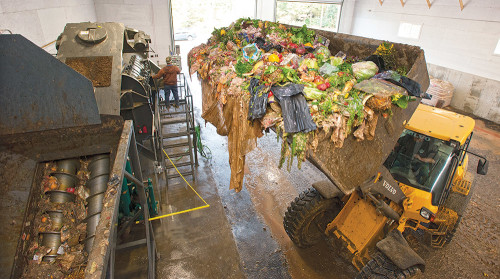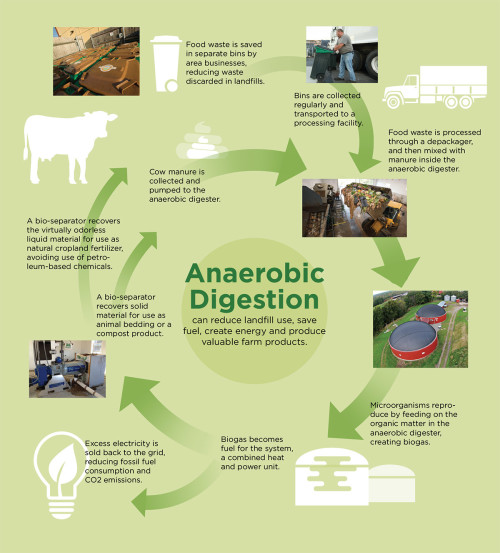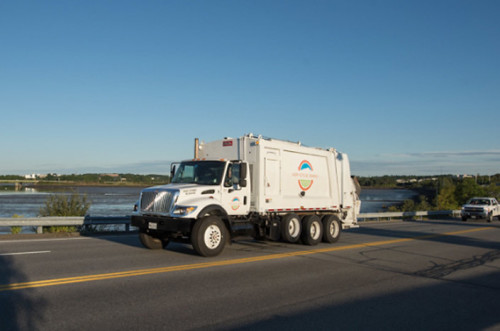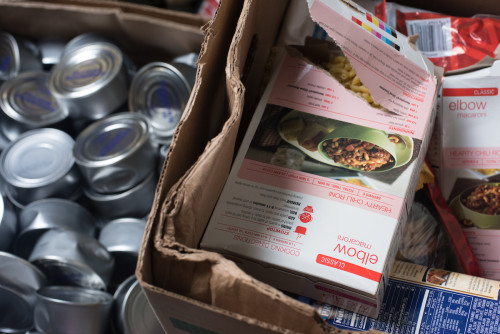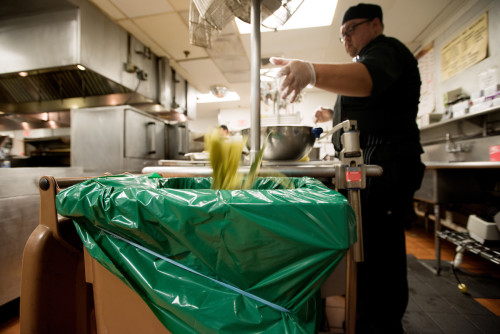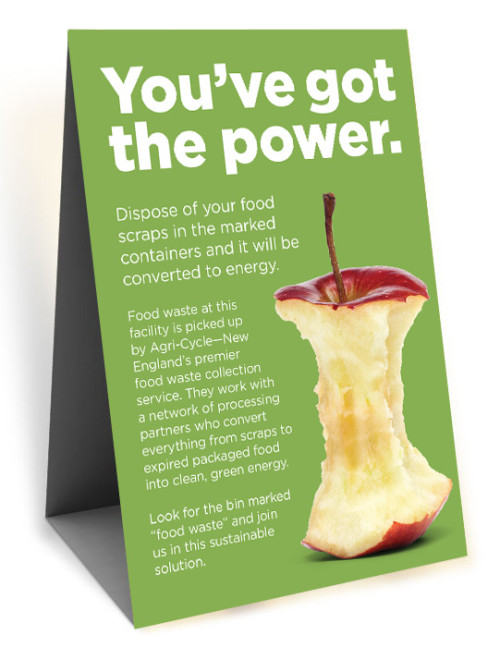How much will it cost?
It depends, but rest assured that our fees are typically competitive – if not cheaper – than your current disposal costs. It is helpful for us to get familiar with your operation to determine your specific needs & goals. This information is used to provide a plan (and estimate) that best fits your operation. Our goal from day-one has been to provide a service that is professional, reliable, friendly & cost-competitive while helping you meet your sustainability goals. There are many variables to every circumstance, but it’s fair to say we’ve seen it all and we are here to help you make the right plan for your operation.
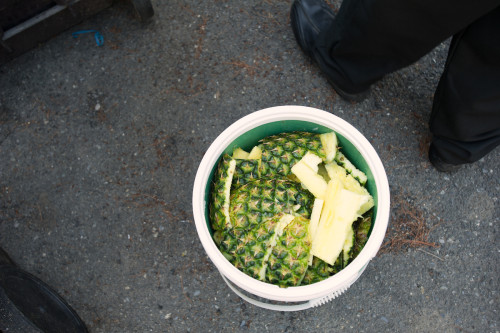
Request a Quote
What can I put in the totes?
Everything you’d put in your backyard compost pile — vegetable and fruit trimmings, eggshells, breads, grains, meat and fish scraps, dairy products, soiled coffee filters, paper towels and more! Thanks to our state of the art de-packaging capabilities, we can also accept food products still in their packaging. Our only exception is that we cannot accept any glass, diapers and a handful of other items. Please feel free to call us with any more-specific questions.
Download and print the PDF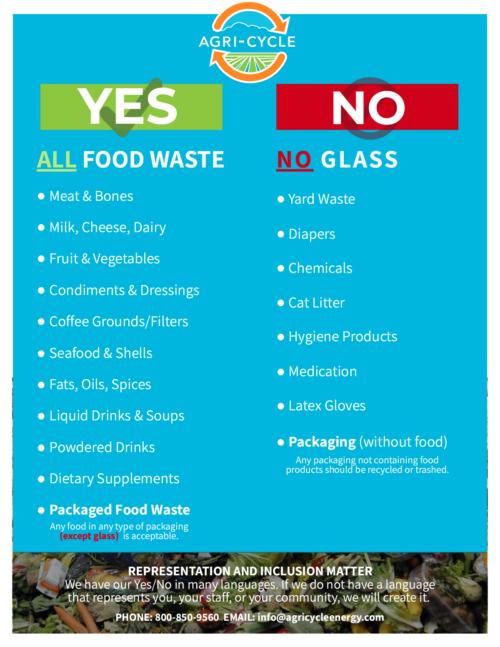
Do you wash the totes?
During each tote service, Agri-Cycle inserts a new liner designed to contain smelly residue and help keep odors to a minimum. In extreme summer heat we will make special arrangements to wash your totes using our state of the art wash trailer.
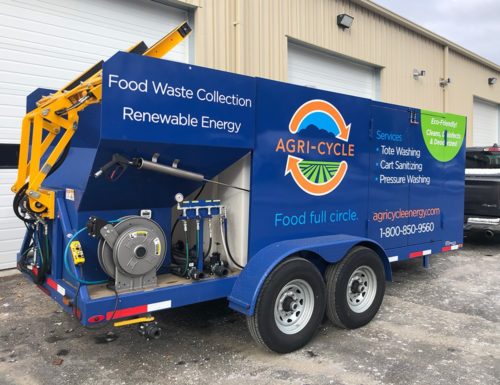
My current trash bill is a flat fee no matter how much I throw away. What do I do?
Speak with your current waste provider and let them know you’d like to work with us on a food waste program. If they are a good partner, they will work with you on meeting your goals both operationally and financially. If your current hauler is not willing to adjust the service for you to encourage recycling, we can provide the names of other haulers who would be happy to work with you.
